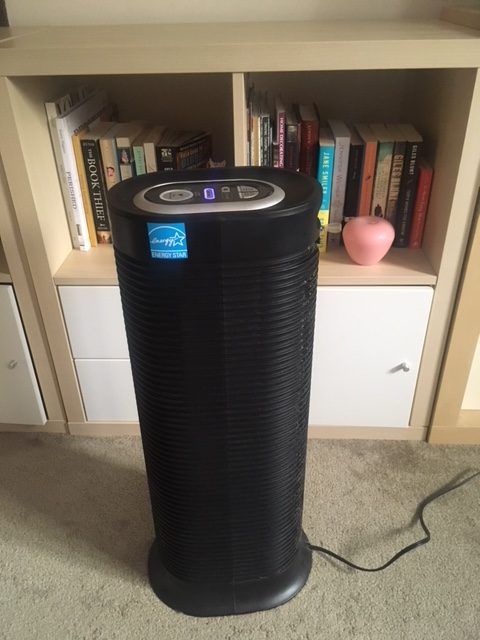The science behind herbal teas and asthma relief
Research shows that certain herbal teas may help relieve asthma symptoms by relaxing the airways and reducing inflammation. Ingredients like ginger, turmeric, and licorice root in these teas have anti-inflammatory properties that can ease breathing difficulties. However, it’s important to note that while herbal teas can complement asthma treatment, they should not replace prescribed medications. Always consult a healthcare provider before trying new remedies for asthma.

What scientific evidence supports the use of herbal teas for asthma relief?
Research has shown that certain herbal teas can help with asthma symptoms. Scientists have found that these teas have natural compounds that can relax the airways. This makes it easier for people with asthma to breathe.
Studies also indicate that some herbs used in teas can reduce inflammation in the lungs. Inflammation is a big problem for people with asthma because it narrows the air passages. By drinking these herbal teas, individuals may experience less swelling and irritation in their respiratory system.
Which specific herbs found in teas are known to alleviate asthma symptoms, and what is their mechanism of action?
Ginger, turmeric, and licorice root are among the herbs known to help with asthma symptoms when included in tea. Ginger works by relaxing the muscles around the airways, making breathing easier. It has been used for centuries as a natural remedy for various ailments, including respiratory conditions.
Turmeric contains a compound called curcumin which helps reduce inflammation in the body, including the lungs. Licorice root also plays a role in soothing inflamed tissues and clearing mucus from the respiratory tract. These actions help improve airflow and reduce asthma symptoms.
Explore natural relief for asthma through tea. Find out which teas are beneficial and how to enjoy them.
How do antioxidants in herbal teas contribute to respiratory health and asthma management?
Antioxidants found in herbal teas play a crucial role in protecting lung tissue from damage caused by free radicals. Free radicals are unstable molecules that can cause harm to cells, leading to inflammation and exacerbating asthma symptoms. By neutralizing these molecules, antioxidants help maintain healthy lung function.
Besides reducing inflammation, antioxidants also boost the immune system’s response against infections that can trigger asthma attacks. Regular consumption of antioxidant-rich herbal teas may therefore support overall respiratory health and aid in managing chronic conditions like asthma.
Can drinking herbal teas reduce the frequency of asthma attacks, according to research studies?
Several research studies suggest that regular intake of certain herbal teas might decrease the frequency of asthma attacks. The natural anti-inflammatory and bronchodilator properties found in some herbs can lead to fewer episodes of severe breathing difficulty among asthmatics.
However, it’s important to note that while these findings are promising, herbal teas should not replace prescribed medications without consulting a healthcare provider. They can be considered as complementary treatments alongside conventional therapies for better management of asthma symptoms.
| Herbal Tea | Active Compounds | Proposed Mechanism | Evidence Level |
|---|---|---|---|
| Ginger Tea | Gingerols, Shogaols | Anti-inflammatory, Bronchodilator | Moderate (Animal studies, small human trials) |
| Green Tea | Epigallocatechin gallate (EGCG) | Antioxidant, Anti-inflammatory | Moderate (Epidemiological studies, clinical trials) |
| Licorice Tea | Glycyrrhizin | Anti-inflammatory, Immune modulating | Low to Moderate (In vitro studies, animal studies) |
| Eucalyptus Tea | Eucalyptol (1,8-cineole) | Mucolytic, Anti-inflammatory< td >Moderate (Clinical trials, in vitro studies) | |
| Low to Moderate (Animal studies, small human trials) |
Are there any potential side effects or risks associated with using herbal teas for asthma?
When considering herbal teas for asthma relief, it’s important to be aware of possible side effects. While many people find these natural remedies helpful, some herbs can interact with medications or trigger allergic reactions. For instance, certain teas might contain pollen or other allergens that could worsen asthma symptoms in sensitive individuals.
Moreover, excessive consumption of some herbal teas may lead to adverse effects such as nausea, dizziness, or headaches. It’s crucial to research each herb and consult a healthcare provider before incorporating it into your routine, especially if you’re already taking medication for asthma or other conditions.
How does the preparation and consumption of herbal teas affect their efficacy in managing asthma symptoms?
The way you prepare and consume herbal teas can significantly impact their effectiveness in relieving asthma symptoms. Brewing time and temperature can alter the strength and concentration of the beneficial compounds in the tea. Generally, steeping the tea for a longer period at a moderate temperature helps extract more of the active ingredients.
Additionally, consuming herbal tea regularly can play a role in its efficacy. Integrating these teas into your daily routine may provide cumulative benefits over time. However, it’s essential to maintain consistency and pay attention to how your body responds to identify what works best for you.
What are the recommended dosages and types of herbal tea for optimal asthma relief?
Finding the right dosage and type of herbal tea is key to maximizing its benefits for asthma relief. Commonly recommended herbs include ginger, peppermint, and licorice root teas due to their anti-inflammatory properties. Starting with one cup per day and gradually increasing as needed while monitoring your body’s response is a sensible approach.
It’s also important to note that individual responses can vary widely based on factors like severity of asthma symptoms and personal sensitivities. Consulting with a healthcare professional who understands both conventional medicine and herbal remedies can help tailor recommendations to your specific needs.
Final Thoughts
Incorporating herbal teas into an asthma management plan could offer additional relief alongside traditional treatments. However, being mindful of potential side effects and interactions is crucial for safety. By choosing appropriate types of tea, preparing them correctly, and adhering to recommended dosages, individuals with asthma may experience improved respiratory health.
Ultimately, while herbal teas present an appealing natural option for symptom management, they should complement rather than replace prescribed medications or medical advice from qualified professionals. Keeping open communication with healthcare providers ensures that any new remedy is both safe and effective for individual health needs.






